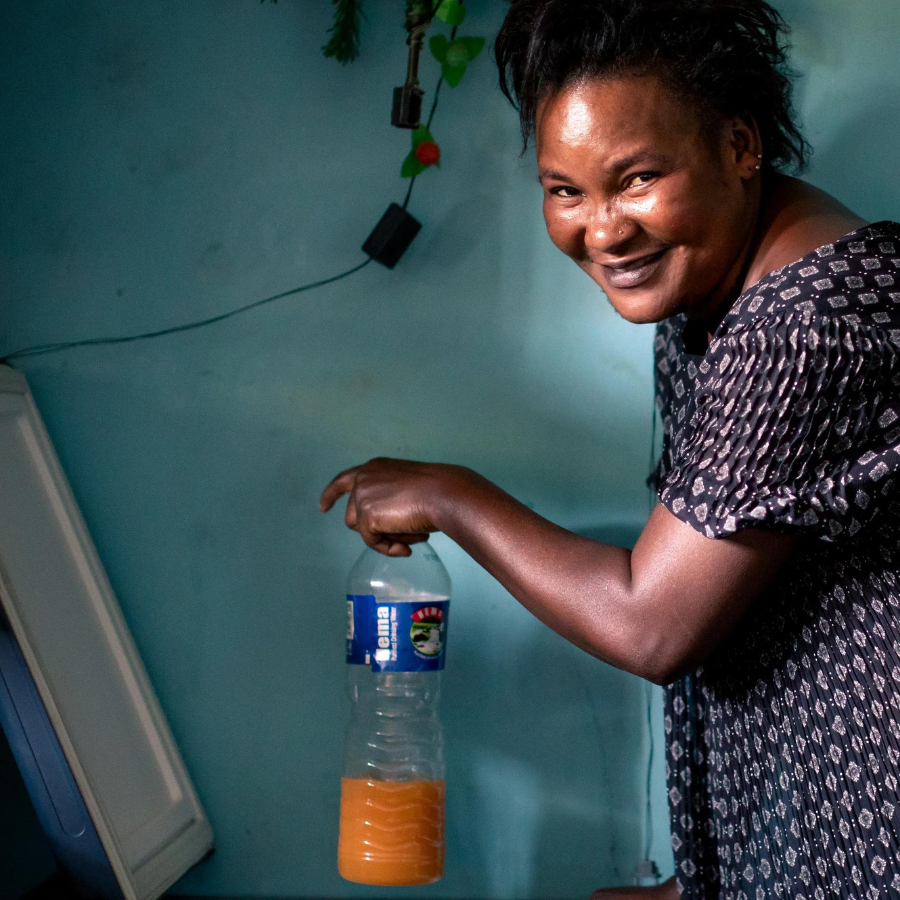Solar is “Better than the Grid”
Mariam Nandagira and her household, residing in Jinja, central Uganda, previously faced extended power outages lasting for weeks. However, their quality of life has significantly improved since acquiring their own solar system, now enjoying the comforts of modern living.

Mariam Nandagira‘s family home enjoys beautiful views over the town of Jinja, in central Uganda. But with only a steep dirt path leading up to her door, it’s painfully difficult to reach. This isn’t a poor neighbourhood, but inaccessibility and poor infrastructure make for frequent power cuts that can last for weeks at a time. For Nandagira and the nine other members of her household, the comforts of modern life were, until recently, just out of reach.
This all changed in 2016, when Nandagira and her husband first laid eyes on a solar system at a friend’s house.
We realised that it was really good, she recalls, so we decided, ‘let us put aside electricity and we will start using solar.
It took the family a year to save enough for the down payment, but in December 2017 they bought their own solar system from Solar Now, which included several lights and a 35 litre refrigerator. After a year of 229,000 shilling (around $61) monthly payments, they will own the system outright.
It wasn’t Nandagira’s first fridge; the family owned one before, but, she says, power cuts made it unreliable.
I would make juice and then the power would go off, so the juice would go bad, she says. The power is always going off. Sometimes it rains too much so they decide to switch it off, or the transformer may blow. But now, she no longer worries that her lights and refrigerator will unexpectedly go off. It has worked for me so well, she says.
Not only is Nandagira’s solar fridge more reliable than her old one, she points out, but in the long run it will also be cheaper. The family’s monthly power bill has dropped from 80,000 shillings to only 18,000 since they began using their solar system, savings which help finance the monthly payments for the fridge. Nandagira is looking forward to the day when both the system and the savings will belong entirely to them.
I want to totally get off electricity so that I live only on solar,
she insists; her TV is still powered by the grid, but as soon as she has enough money she plans to replace it with a solar model. A number of other homes in her neighborhood have done the same.
I am benefiting from it so much, says Nandagira.
I have many children, and many grandchildren. When a child is feeling thirsty, instead of buying cold water from the shop, I would have already boiled water and put it in my fridge.
They are so proud of the solar, she says of her family. When people complain that the power has gone off, our solar is still on.
***
About the Global LEAP Awards
The Global LEAP Awards is an international competition to identify and promote the world’s best off-grid appliances, accelerating market development and innovation. This unique programme has evolved into a trusted global brand that serves as the de facto source of accurate, actionable information about the quality and energy performance of off-grid appliances, with support from Power Africa, UK aid, Energising Development, Powering Agriculture, and USAID, and in partnership with the Efficiency for Access Coalition which is co-chaired by the IKEA Foundation and UK aid.